Hi from Australia,
Project --> IoT with LoRaWAN, Pycom, The Things Network & Node-RED
https://core-electronics.com.au/tutorials/iot-with-lorawan-pycom-the-things-network-and-node-red.html
Lorawan gateway at home --> Sentrius Gateway
Device --> LoPy4 + PyTrack
Firmware version --> 1.20.2.rc3
I searched on different forum on the different ways to join in OTAA mode in adding the Australian channels and most of the configurations were working.
Basically I can join the gateway
I can send data from the LoPy, it is received by the Application and I can received it in Node-RED.
So far, so good.
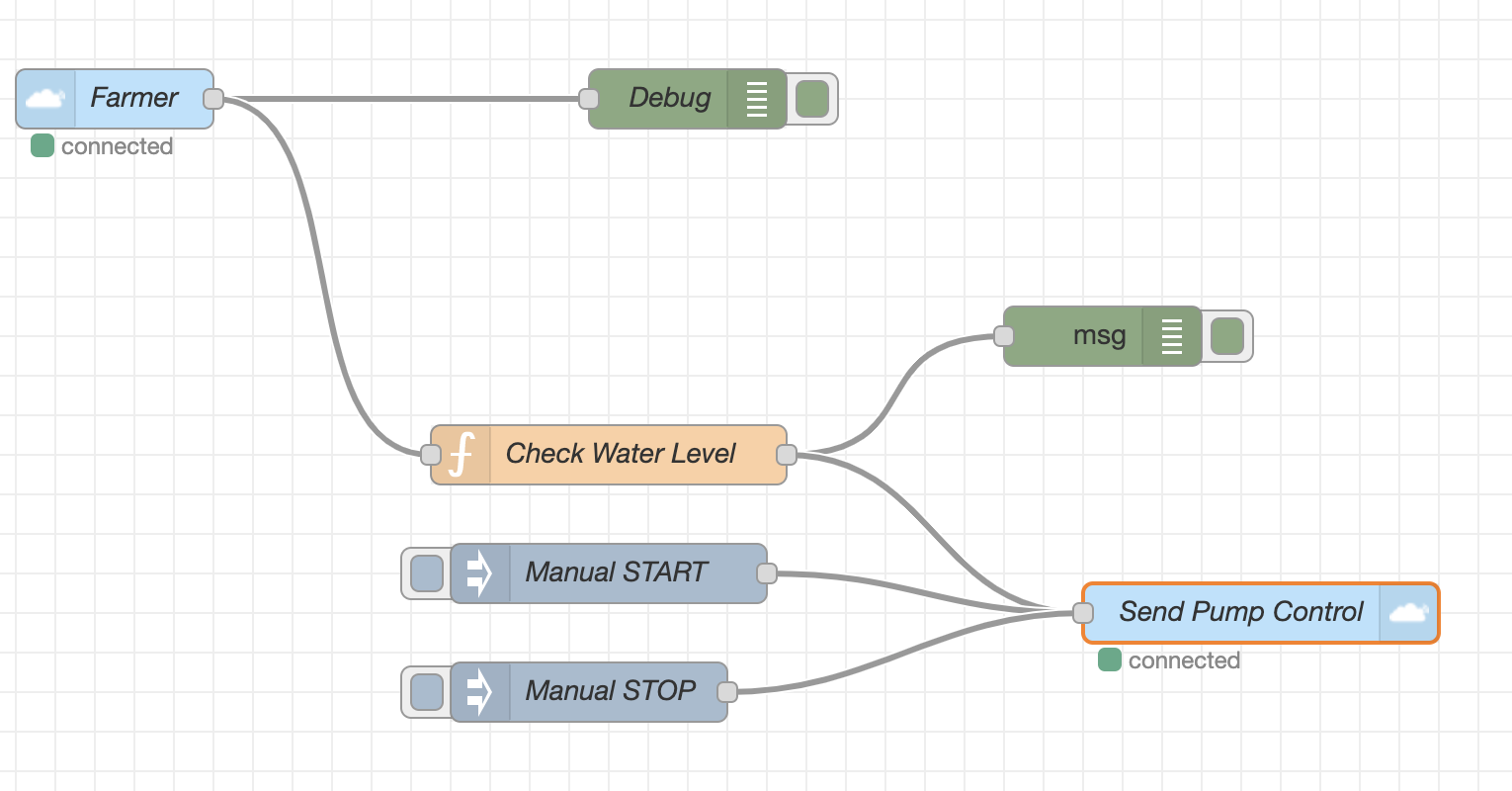
Data received from the LoPy - Application Traffic
The LoPy is sending “water_level: 0”
and in response, Node-RED is transmitting --> “pump_running: 1”
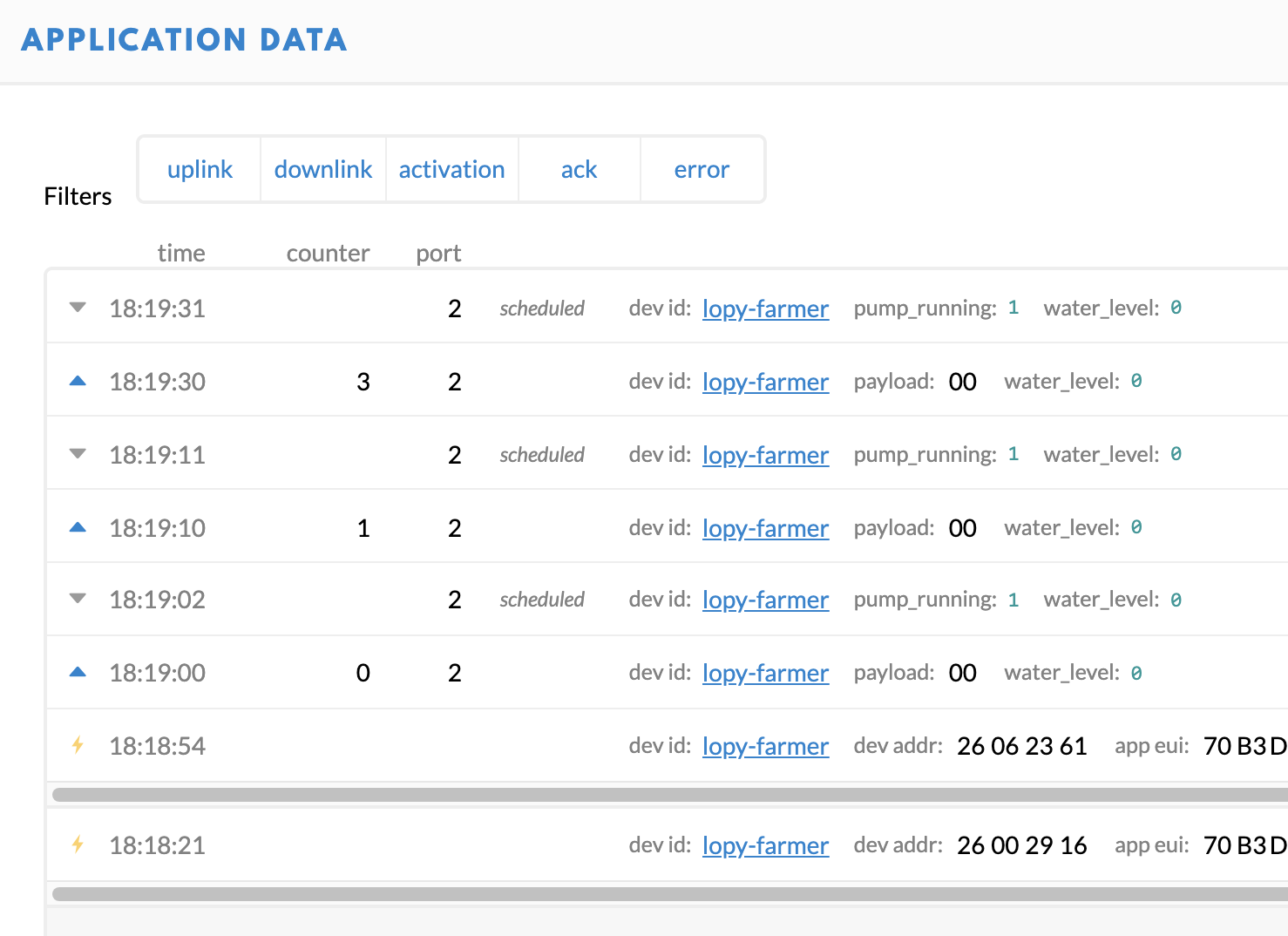
Data received from the LoPy - Gateway Traffic
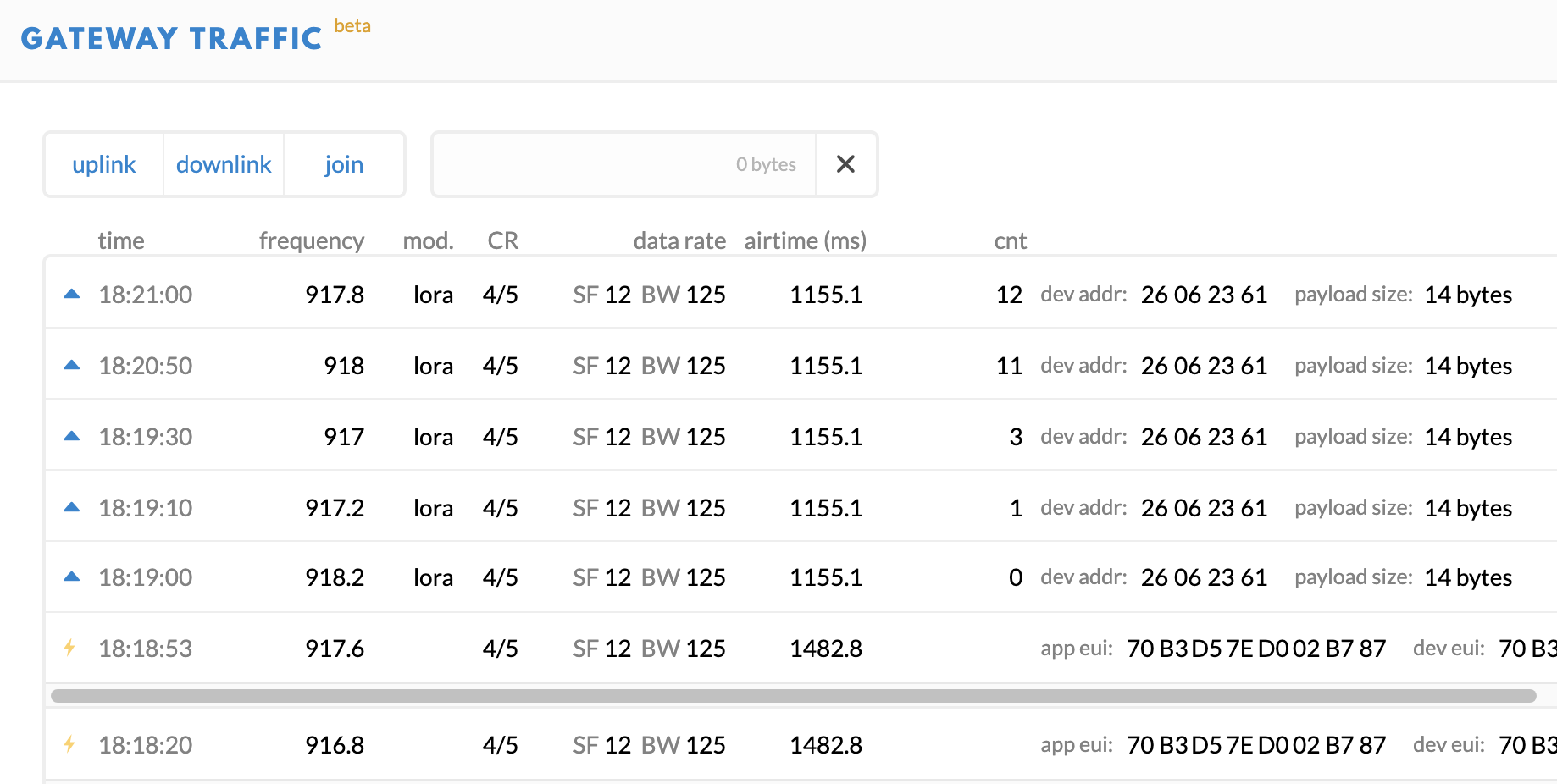
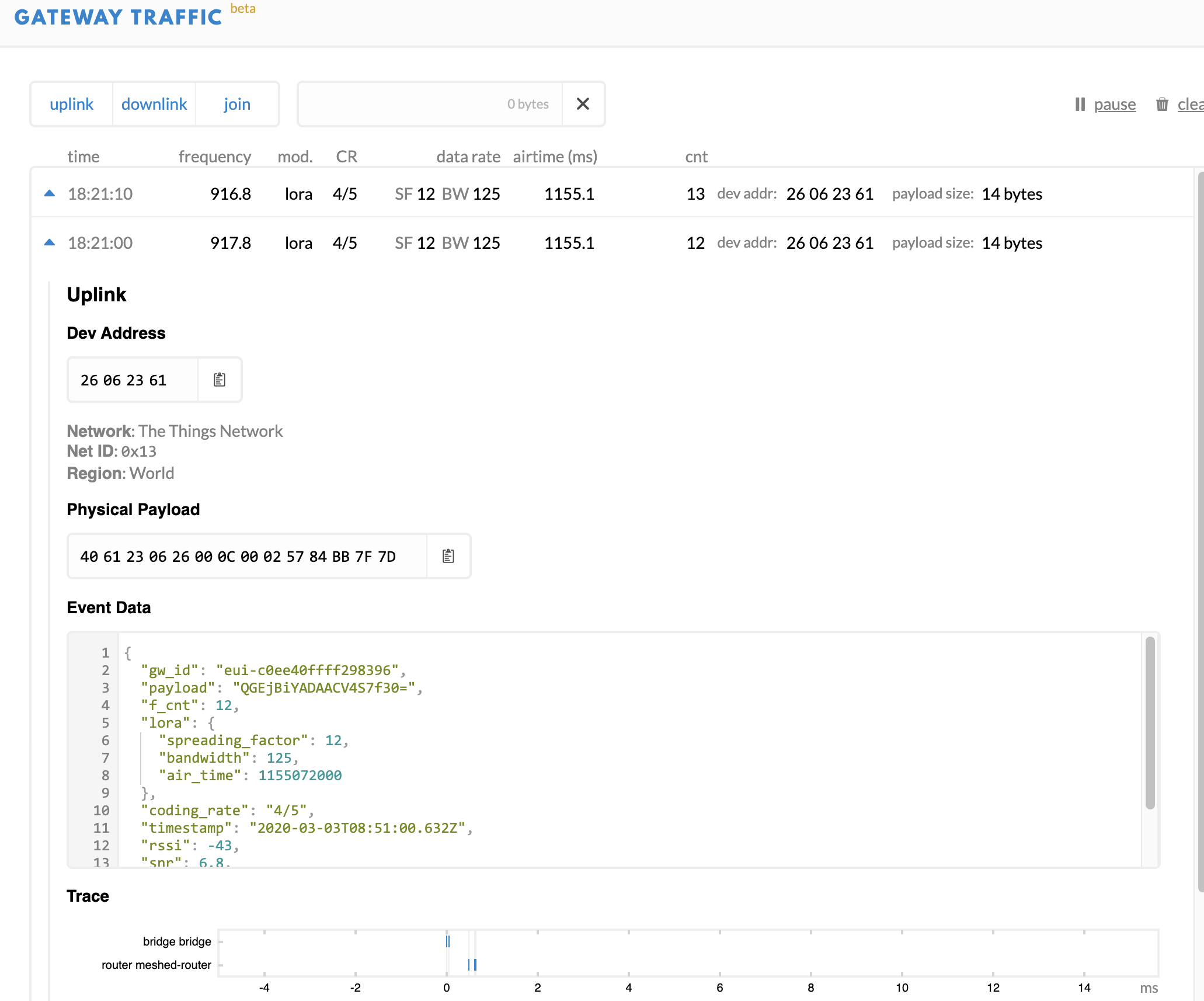
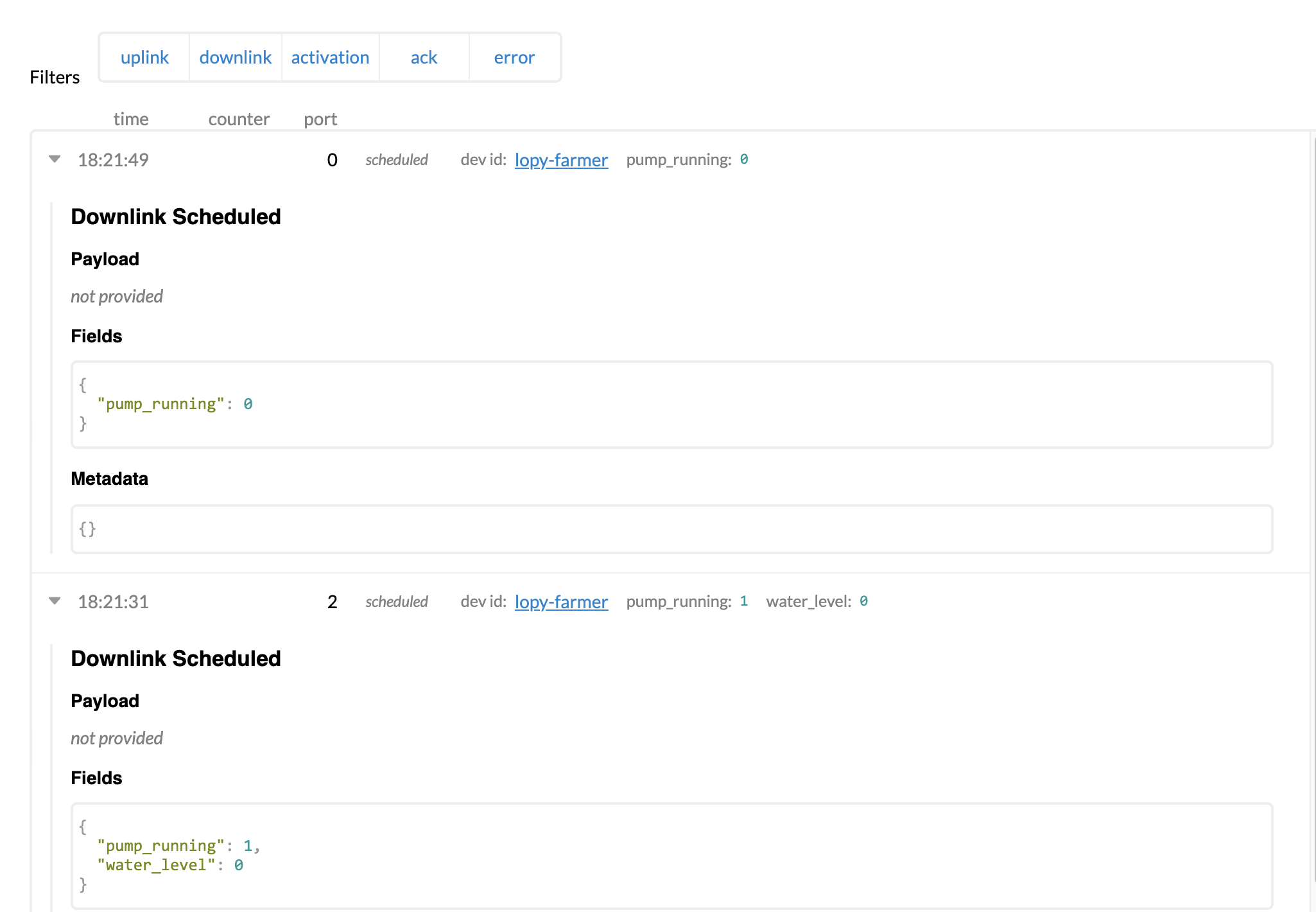
The Application receives the data sent by Node-RED but the LoPy doesn’t received it from the gateway.
I tried different ports but no luck.
The Node-RED code is pretty simple:
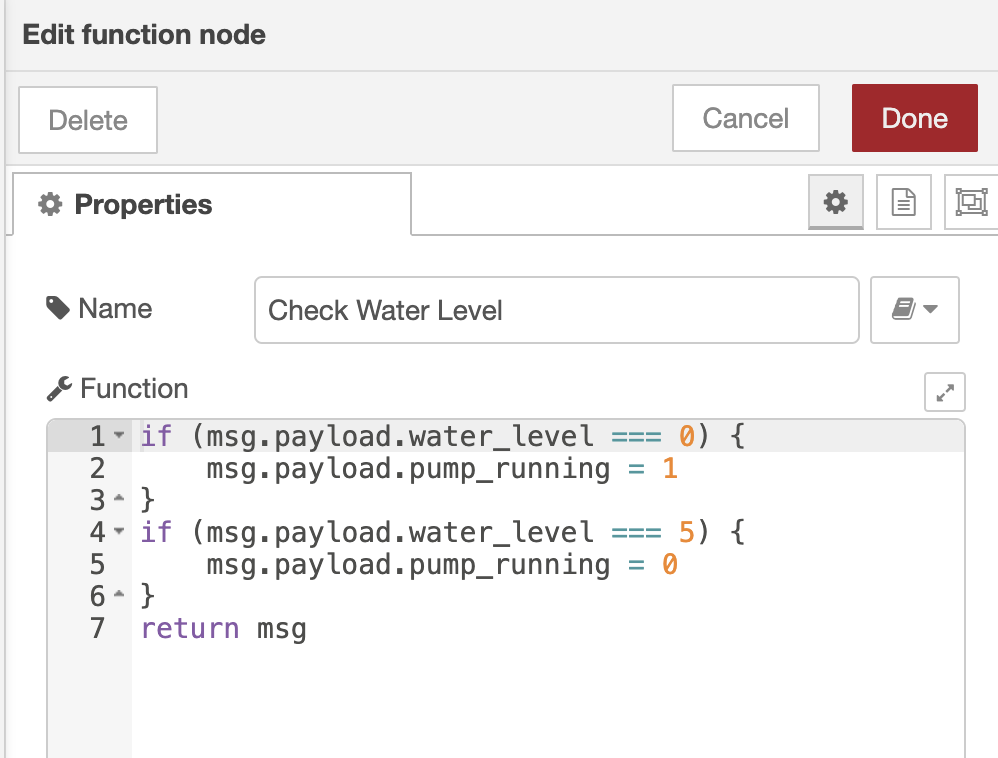
I don’t know if this is a problem with how I join the network? (Channels created, …)
or maybe the is something in the LoPy code that is not correct
Would anyone have an idea of what am I doing wrong?
Could it be that the JSON sent from node-RED is not correct?
See --> link
I looked there without any luck:
–> link
–> link
–> link
–> link
–> link
Thank you for your help.
Xavier
CODE LOPY4
from network import LoRa
import struct
import socket
import pycom
import time
import binascii
import utime
LORA_FREQUENCY = 916800000
LORA_GW_DR = "SF7BW125" # DR_5
LORA_NODE_DR = 5
COLOUR_WHITE = 0xFFFFFF
COLOUR_BLACK = 0x000000
COLOUR_RED = 0xFF0000
COLOUR_GREEN = 0x00FF00
COLOUR_BLUE = 0x0000FF
pycom.heartbeat(False)
pycom.rgbled(COLOUR_BLACK)
print("****** Farmer App OTAA *******")
# lora config
lora = LoRa(mode=LoRa.LORAWAN, region=LoRa.AU915)
# access info from ttn console (note; we just need the app id & app key)
dev_eui = binascii.unhexlify('WWWWWWWWWWWW') # these settings can be found from TTN
app_eui = binascii.unhexlify('ZZZZZZZZZZZZZZZZZ')
app_key = binascii.unhexlify('XXXXXXXXXXXXXXXXXXXXXXXXXXXX')
for i in range(0, 72):
lora.remove_channel(i)
# adding the Australian channels
print("add channels")
for i in range(8, 16):
lora.add_channel(i, frequency=915200000 + i * 200000, dr_min=0, dr_max=3)
lora.add_channel(65, frequency=917500000, dr_min=4, dr_max=4)
for i in range(0, 8):
lora.add_channel(i, frequency=923300000 + i * 600000, dr_min=0, dr_max=3)
# attempt join - continues attempts background every 15 seconds
lora.join(activation=LoRa.OTAA, auth=(dev_eui, app_eui, app_key), timeout=0)
# wait for a connection to be established
print('Waiting for LoRaWAN network connection...')
while not lora.has_joined():
utime.sleep(1)
if utime.time() > 15:
print("possible timeout or collision")
machine.reset()
pass
print('Network joined!')
s = socket.socket(socket.AF_LORA, socket.SOCK_RAW)
s.setsockopt(socket.SOL_LORA, socket.SO_DR, LORA_NODE_DR)
s.setblocking(False)
pump_running = False
water_level = 0
empty_level = 0
full_level = 5
def check_downlink_messages():
global pump_running # We need to tell Python to use the variable
# defined outside this function
downlink_message, port = s.recvfrom(256) # See if a downlink message arrived
#print(downlink_message)
#print(port)
if not downlink_message: # If there was no message, get out now
return
print("Downlink message received!")
if downlink_message[0]: # The first byte is non-zero
print("Starting the pump")
pump_running = True
else:
print("Stopping the pump")
pump_running = False
def send_level():
print('Sending water level: {}'.format(water_level))
uplink_message = bytes([water_level])
s.send(uplink_message)
def adjust_water_level():
global water_level # We need to tell Python to use the variable
# defined outside this function
if pump_running:
if water_level < full_level: # Can't be overfilled
water_level += 1 # Water level rises
else:
if water_level > empty_level: # Can't be less than empty
water_level -= 1 # Water level drops
while(True):
# Code at the indent happens every 10 seconds
adjust_water_level()
send_level()
for i in range (10): # 10 x 1 second delay
# Code at this indent happens every second
check_downlink_messages()
if pump_running: # At any time the pump might be stopped
pycom.rgbled(COLOUR_GREEN)
else:
pycom.rgbled(COLOUR_RED)
time.sleep(1) # 1 second delay